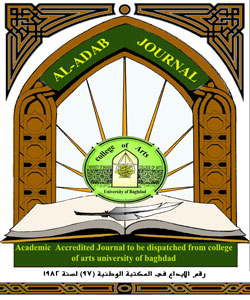Abstract
Societies that are characterized by ethnic, ethnic and religious pluralism, such as Iraq, are considered the society’s most in need to achieve the principles of peaceful coexistence and peace building after the defeat of the so-called terrorist organization ISIS in 2017, because of the advantages and positives that it achieves which have a good impact on the society as a whole, and to achieve the peaceful coexistence and peace-building in Iraq it needs among what it needs, to realize the effects of a number of factors affecting the promotion of peaceful coexistence and peace-building, foremost of which are the political and legal factors, including, for example, strengthening good governance in state institutions, rejecting sectarian quotas, combating terrorism and building trust among the components of the Iraqi people, and the success of the national reconciliation project, and spreading a culture of non-discrimination and respect for the law and solving some constitutional problems related to the issue of federalism , so this study aims to investigate the hypothesis that there is a close relationship between peaceful coexistence and peace-building and many political and legal factors in Iraqi society, so this study will attempt to answer a number of questions include: What is the impact of political factors on peaceful coexistence and peace-building in Iraq? How have the legal factors affected peaceful coexistence and peace-building in Iraq? Is it possible to reduce these political and legal factors and provide possible solutions that contribute to promoting peaceful coexistence and peace-building in Iraq? This research used several approaches in order to address and become familiar with all aspects related to the subject, such as the historical method and the comparative method, as well as the analytical method. The research concluded that strengthening political and legal factors in Iraqi society may positively affect peaceful coexistence and peace-building, which may contribute in the future to strengthening national cohesion and stability of Iraqi society. The research also recommended the adoption of the concept of good governance in the institutions of the Iraqi state through the management of public affairs in a specific manner characterized by rationality, equality, rule of law, integrity, transparency, response to the demands of citizens and the promotion of national reconciliation, and that there should be a dialogue between all sects and nationalities based on common interests, and adopting the rule of law In resolving internal disputes, which is the most important indicator of the stability of civil peace in the country.
Keywords
Iraq
legal factors
peace building
Peaceful coexistence
political factors
Abstract
تعد المجتمعات المتصفة بالتعددية العرقية والأثنية والدينية كالعراق بمثابة أكثر المجتمعات المحتاجة إلى تحقيق مبادئ التعايش السلمي وبِناء السلام بعد هزيمة مايسمى بتنظيم داعش الارهابي عام 2017, لما يحققه من مزايا وإيجابيات لها أثرها الجيد على عامة المجتمع, ولتحقيق التعايش السلمي وبِناء السلام في العراق يحتاج من ضمن ما يحتاجه إِلى إِدراك تأثيرات عدد من العوامل المؤثرة على تعزيز التعايش السلمي وبناء السلام ويأتي في مُقدِمتها العوامل السياسية والقانونية منها على سبيل المثال: تعزيز الحكُم الرشيد في مؤسسات الدولة, ونبذ المحاصصة الطائفية ، ومكافحة الإرهاب، وبناء الثقة بين مكونات الشعب العراقي, وإنجاح مشروع المصالحة الوطنية, وإشاعة ثقافة عدم التمييز، واحترام القانون، وحل بعض المشاكل الدستورية المتعلقة في مسألة الفيدرالية؛ لذلك فان هذه الدراسة تهدف الى التحقق من فرضية مفادها أن هناك علاقة وثيقة بين التعايش السلمي وبِناء السلام وبين عدد من العوامل السياسية والقانونية في المجتمع العراقي ؛لذلك هذه الدراسة ستحاول الإجابة على عدد من التساؤلات منها : ما تأثير العوامل السياسية على التعايش السلمي وبِناء السلام في العراق؟, كيف أثرت العوامل القانونية على التعايش السلمي وبِناء السلام في العراق؟, وهل يمكن الحد من هذه العوامل السياسية والقانونية وتقديم حلول ممكنة تساهم في تعزيز التعايش السلمي وبناء السلام في العراق؟ استعملت هذه الدراسة مناهج عدة ؛بغية التطرق والإلمام بجميع الجوانب المتعلقة بالموضوع مثل :المنهج التاريخي والمنهج المقارن كما تمت الاستعانة بالمنهج التحليلي. استخلصت الدراسة : إن تعزيز العوامل السياسية والقانونية في المجتمع العراقي قد تؤثر بشكل ايجابي على التعايش السلمي وبِناء السلام مما قد يسهم مستقبلا في تعزيز اللحمة الوطنية واستقرار المجتمع العراقي. كما أوصت الدراسة بتبني مفهوم الحكُم الرشيد في مؤسسات الدولة العراقية عبر إِدارة الشؤون العامة بطريقة مُحددة تتصف بالمساواة ،وسيادة القانون ،والنزاهة، والشفافية ،والاستجابة لمطالب المواطنين ،وتعزيز المصالحة الوطنية, وان يكون هُناك تحاور بين كُل الطوائف والقوميات مبنياً على المصالح المُشتركة, والاحتكام الى القانون في حل الخلافات الداخلية والذي يعد أهم مؤشرات استقرار السلم الأهلي التفاعلي.
Keywords
التعايش السلمي
العراق
العوامل السياسية
العوامل القانونية
بناء السلام
